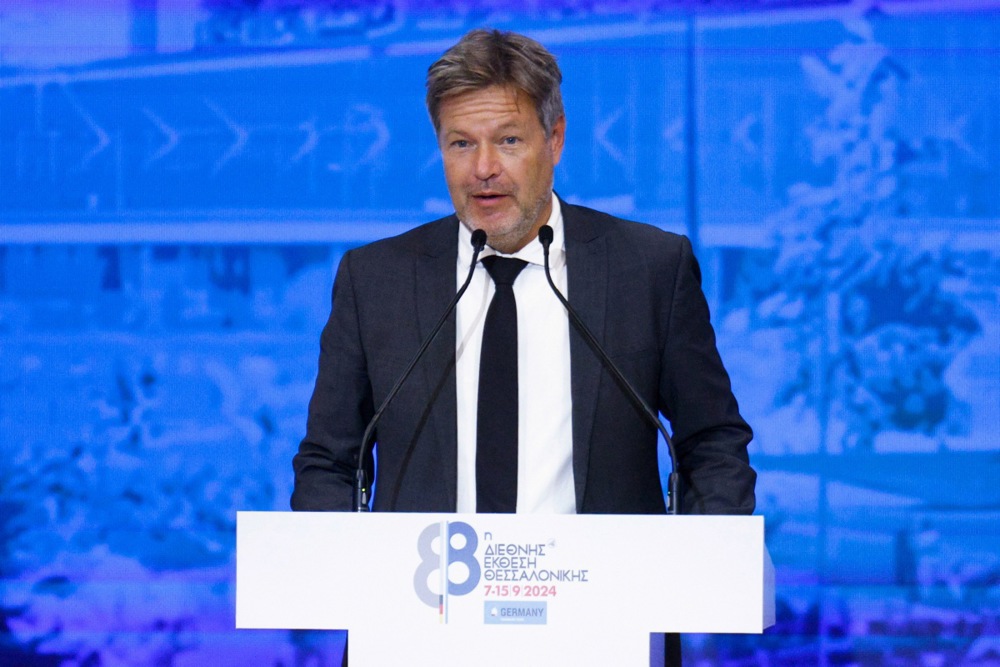Young people sitting on local and national-level boards of Germany’s Greens party have been resigning en masse in recent days, claiming the party has veered too much to the Right.
After a series of crushing defeats in recent German State elections and abysmal polling on all fronts, the Greens co-leaders Ricarda Lang and Omid Nouripour announced on September 25 that the party’s entire executive board would resign.
Following that, many other elements of the Greens have also started jumping ship.
On September 26, the entire executive board of the Green Youth announced its collective withdrawal, citing “conflicts” with the party leadership.
In their resignation letter, the departing chairs of the Green Youth organisation, Svenja Appuhn and Katharina Stolla wrote it was “not possible to be part of a party at the same time and to promote a fundamentally different policy than one’s party implements”.
Regarding the exit of the national leadership, they added: “We do not assume that a personnel realignment will lead to a substantive and strategic realignment of the party in our sense. It’s better if we part ways now and you can make a good new start.”
Appuhn and Stolla cited the provision of extra resources for the military, the tightening of asylum laws and the destruction of the village of Lützerath for coal mining as all being examples of this shift to the Right.
In the “absence of an audible left-wing opposition in the Bundestag”, the Green Youth “increasingly saw itself in the role of a public left-wing opposition”, they wrote, adding that politics was now “only driven by the Right”.
The pair said they would create a “new, decidedly left-wing youth association” after the federal congress of the Green Youth in October.
Local Green chapters followed suit. All eight Bavarian State executive committee members of the youth wing resigned from the party, followed by two chairs of the group in Lower Saxony and the youth leadership in North Rhine-Westphalia.
The Bavarian chapter wrote: “We can no longer and do not want to support many decisions that the Greens have made in their participation in government, as well as the current programmatic, substantive and strategic course,” and cited the same reasons as Appuhn and Stolla.
Saxony’s now former youth leadership said: “Greens are moving further and further away from focusing on the social question,” and added that they opposed developments such as the tightening of asylum laws.
North Rhine-Westphalia’s youth leadership said all eight of its members would leave because the Greens would “no longer pursue left-wing politics”.
On September 29, seven out of eight members of the board of the Green Youth in Schleswig-Holstein also announced their resignations from the party.
Spokeswoman for the group, Katharina Kewitz, said: “I am leaving the Green Party because it is not prepared to take on the rich and corporations in order to fundamentally change social conditions.”
Another Green Youth executive, Lars Brommann, emphasised that what the youth organisation wanted to fight for “cannot be achieved in this place”.
“Instead, the party supports cuts in social benefits and tightening of asylum laws, thus promoting social tension.”
By contrast, deputy State chairwoman and co-ordinator of the Green Youth, Mayra Vriesema, had warned that in light of “enormous gains” of the hard-right Alternative for Germany (AfD) party, further fragmentation of the political Left was a mistake.
On September 30, the Youth leadership of the Greens in Brandenburg also resigned. They, too, pointed to the party’s asylum and austerity policies and indicated they could join a new, left-wing initiative.
In Rhineland-Palatinate, two board members, who also acted as spokespeople for the State association of the Green Youth, have resigned. Three others have said they wanted to remain on board.
Before the wave of resignations, in early September an open letter had been written to the party leadership in reaction to the move by the national government, where Greens are a coalition partner, that tightened asylum laws.
That letter, titled “Human Rights are Non-Negotiable”, called for rejecting the new migration policies in Germany.
“Instead of focusing on humanity and human rights, Germany is increasingly relying on isolation, fences and even agreements with authoritarian regimes that trample on the dignity of those seeking protection,” the letter read.
“Anyone who adopts right-wing narratives only plays into the hands of the anti-democratic and misanthropic parties.” The open letter was signed more than 2,000 times.
Greens found themselves disagreeing with Green agriculture minister Cem Özdemir as well.
Özdemir, a child of migrant parents from Turkey, wrote in a guest article in the newspaper FAZ, published on September 26, about his daughter facing both racism in the Baltics and harassment by migrants in Germany.
“When she is out and about in the city, it is more common for her or her friends to be unpleasantly gawked at or sexualised by men with a migration background,” he wrote.
Özdemir claimed his daughter, “like many women” has “grown a thick skin”, but said he felt disappointed “that there is no more offensive discussion of what is behind it: the patriarchal structures and the role of women in many Islamic countries”.
He stressed he did not want to condemn refugees across the board because many of them worked hard and integrated well in society.
He did go on to say that asylum had increasingly developed into a right wielded by the strongest among mainly young men arriving Germany, thus undermining acceptance and leading to “massive social upheavals”.
In response, one Green MP told the weekly magazine Der Spiegel that Özdemir had “instrumentalised” his daughter, claiming that was “morally blatantly disqualifying”.





